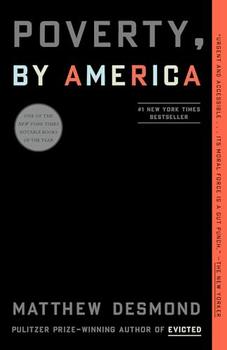Summary | Excerpt | Reading Guide | Reviews | Beyond the Book | Readalikes | Genres & Themes | Author Bio

Crystal bounced around between dozens of group homes and sets of foster parents. She lived with her aunt for five years. Then her aunt returned her. After that, the longest Crystal lived anywhere was eight months. When she reached adolescence, Crystal fought with the other girls in the group homes. She picked up assault charges and a scar across her right cheekbone. People and their houses, pets, furniture, dishes—these came and went. Food was more stable, and Crystal began taking refuge in it. She put on weight. Because of her weight, she developed sleep apnea.
When Crystal was sixteen, she stopped going to high school. At seventeen, she was examined by a clinical psychologist, who diagnosed her with, among other things, bipolar disorder, post-traumatic stress disorder, reactive attachment disorder, and borderline intellectual functioning. When she turned eighteen, she aged out of foster care. By that time Crystal had passed through more than twenty-five foster placements. Because of her mental illness, she had been approved for Supplemental Security Income (SSI), a government income subsidy for low-income people who are old, blind, or who have a disability. She would receive $754 a month, or a little over $9,000 a year.
Crystal was barred from low-income housing for two years because of an assault charge she received for fighting in the group home. Even if she had not been barred, she would still have found herself at the bottom of a waiting list that was six years long. Crystal secured her first apartment in the private market: a run-down two-bedroom unit. The apartment was located in a majority-Black neighborhood that ranked among the city's poorest, but Crystal herself was Black and had been turned down for apartments in the Hispanic and white areas of town. Crystal's rent took 73 percent of her income, and it wasn't long before she fell behind. A few months after moving in, she experienced her first official eviction, which went on her record, making it likely that her application for housing assistance would be denied. After her eviction, Crystal met a woman at a homeless shelter and secured another apartment with her new friend. Then Crystal put that new friend's friend through a window, and the landlord told Crystal to leave.
Crystal spent nights in shelters, with friends, and with members of her church. She learned how to live on the streets, walking them at night and sleeping on the bus or in hospital waiting rooms during the day. She learned to survive by relying on strangers. She met a woman at a bus stop and ended up living with her for a month. People were attracted to Crystal. She was gregarious and funny, with an endearing habit of slapping her hands together and laughing at herself. She sang in public, gospel mostly.
Crystal had always believed that her SSI was secure. You couldn't get fired from SSI, and your hours couldn't get cut. "SSI always come," she said. Until one day it didn't. Crystal had been approved for SSI as a minor, but her adult reevaluation found her ineligible. Now her only source of income was food stamps. She tried donating plasma, but her veins were too small. She burned through the remaining ties she had from church and her foster families. When her SSI was not reinstated after several months, she descended into street homelessness and prostitution. Crystal had never been an early riser, but she learned that mornings were the best time to turn tricks, catching men on their way to work.
For Crystal and people in similar situations, poverty is about money, of course, but it is also a relentless piling on of problems.
Poverty is pain, physical pain. It is in the backaches of home health aides and certified nursing assistants, who bend their bodies to hoist the old and sick out of beds and off toilets; it is in the feet and knees of cashiers made to stand while taking our orders and ringing up our items; it is in the skin rashes and migraines of maids who clean our office buildings, homes, and hotel rooms with products containing ammonia and triclosan.
Excerpted from Poverty, by America by Matthew Desmond. Copyright © 2023 by Matthew Desmond. Excerpted by permission of Crown. All rights reserved. No part of this excerpt may be reproduced or reprinted without permission in writing from the publisher.
He has only half learned the art of reading who has not added to it the more refined art of skipping and skimming
Click Here to find out who said this, as well as discovering other famous literary quotes!
Your guide toexceptional books
BookBrowse seeks out and recommends the best in contemporary fiction and nonfiction—books that not only engage and entertain but also deepen our understanding of ourselves and the world around us.